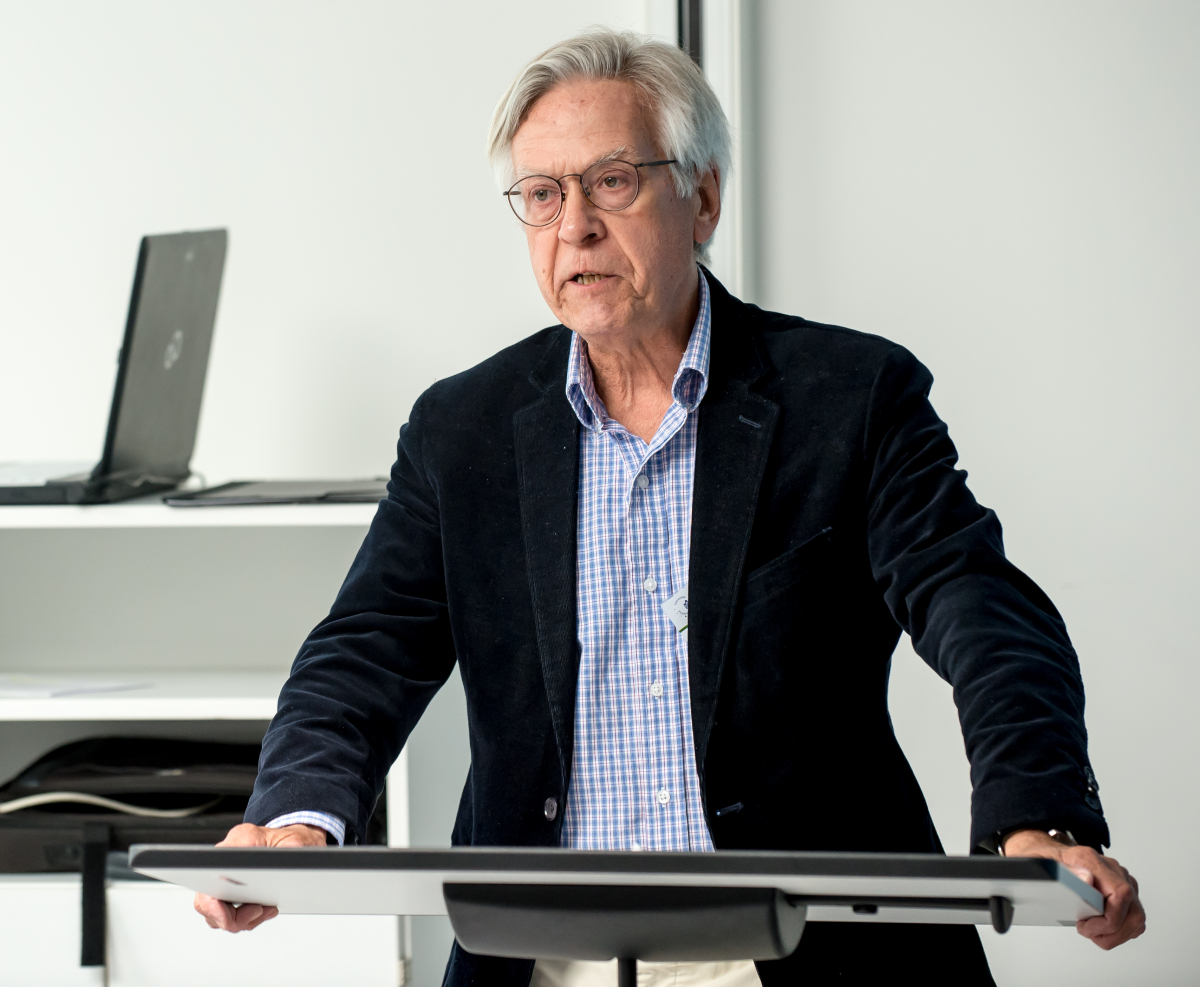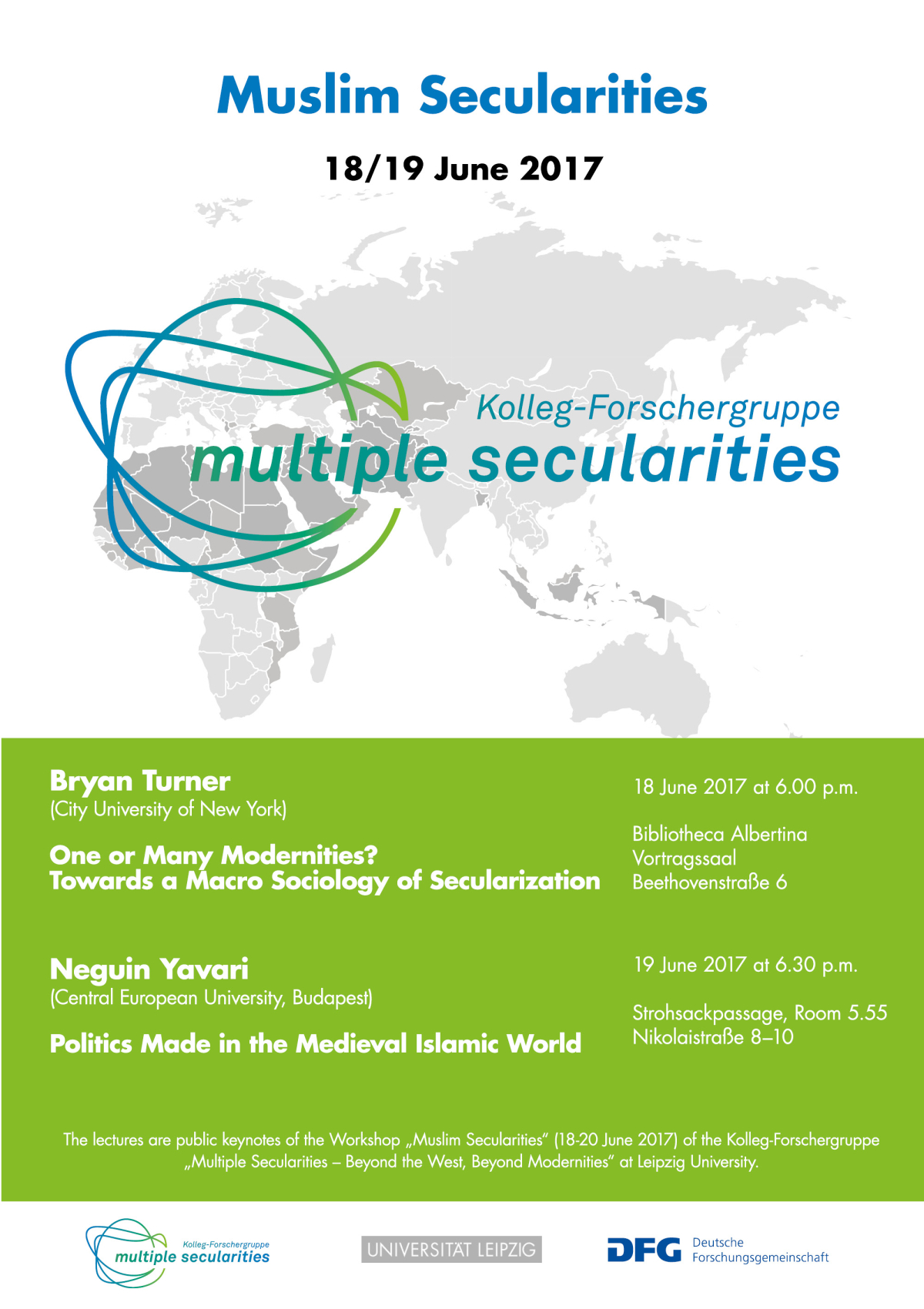 Foto: Karla Fritze
Foto: Karla FritzeThe lecture traces the early history of postwar modernization theory and the emergence of multiple modernity perspectives concluding with S.N.Eisenstadt. Contemporary research has examined and emphasized different patterns of secularity. Is modernization theory dead and buried? Bryan Turner will examine the demographic transition to modernity. While this is not uniform in terms of conditions and trajectories, the outcome is the same – low fertility rates as measured by Total Fertility Rate or TFR. While there is the widespread prediction of rapid global expansion of the world Muslim population to 2.76 billion by 2050, Muslim TFR has collapsed in the last three decades across the Muslim world. Estimates of Muslim growth are being radically revised. What are the implications of low TFR combined with increasing life expectancy - changing family patterns (late marriage or no marriage, no fault divorce, generational discontinuity), declining work force and increasing dependency on technology to sustain productivity and/or migration, transformation of women’s status, growing public acceptance of homosexuality and same-sex marriage, ageing of the population, marginalization of the elderly, above all a crisis of masculinity and conservative religio- political counter-movement. This demographic transition in the Muslim world does not replicate demographic transition of the West but the outcome is similar. I call this the modernization of sex and the demographic secularization of religions.
One or many modernities?
Bryan Turner is one of the world’s leading sociologists of religion; he has also devoted attention to sociological theory, the study of human rights, and the sociology of the body. His current research involves the role of religion in contemporary Asia and the changing nature of citizenship in a globalizing world. He does research on Muslim communities in the United States and Australia with special reference to the Shari’a, and the legal debate about same-sex marriages. Professor Turner is the Presidential Professor of Sociology and Director of
the Mellon Committee for the Study of Religion at the City University of New York. He is also professor of social and political thought at the University of Western Sydney, Australia. He has been awarded the Doctor
of Letters from both Flinders University in South Australia and the
University of Cambridge. Turner received the Max Planck Research Award together with Hans Joas in 2015.
Bryan Turner has written, coauthored, or edited more than seventy books and more than two hundred articles and chapters, including The Religious and the Political: A Comparative Sociology of Religion (2013) and Religion and Modern Society: Citizenship, Secularisation and the State (2011), Vulnerability and Human Rights (2006), The Body and Society: Explorations in Social Theory (2008, first published in 1984). He is also an author or editor of the Cambridge Dictionary of Sociology, Blackwell Companion to Social Theory, and Sage Handbook of Sociology. He is a founding editor of the journals Body & Society, Citizenship Studies, and Journal of Classical Sociology.
The public keynote will inaugurate the Workshop "Muslim Secularities: Explorations into Concepts of Distinction and Practices of Differentiation" (18 - 20 June, KFG "Multiple Secularities"). On 19 June Neguin Yavari will deliver another public keynote on "Politics Made in the Medieval Islamic World".



